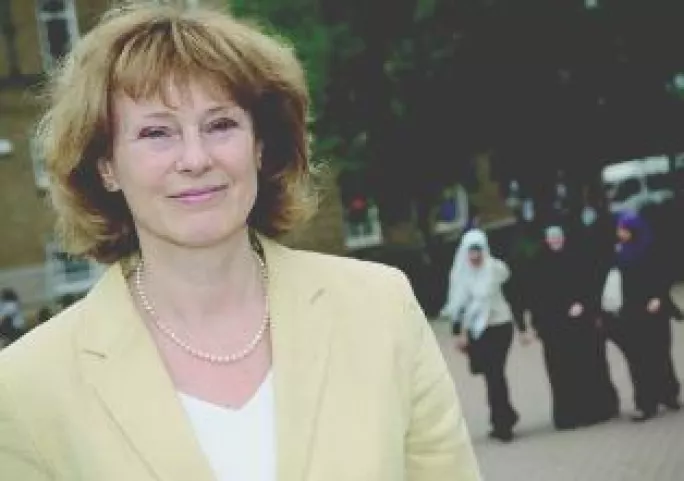‘We want teaching in the FE sector to be elite but not elitist’
Toni Fazaeli, chief executive of the Institute for Learning, writes:
Anybody watching Tough Young Teachers, the documentary series on Teach First, is bound to see initial training and support for those starting out in their career as a teacher as a ‘must have’, not optional. Viewers probably think that more than six weeks of initial preparation is needed before starting to teach in the classroom, as well as a lot more support from seasoned teachers, rather more than the relentless diet of overseeing, monitoring and checking by senior people that the programmes seem to dwell on.
As ever with television programmes, I suspect that a good deal of footage was edited out: hours of film showing ongoing and careful mentoring and guiding of new teachers by more experienced teachers will be on the cutting room floor and did not reach our screens, probably due to its lack of dramatic value. I prefer this explanation to the idea that it might have been down to a lack of opportunities to film hours of precious and effective professional support for new teachers.
The Institute for Learning (IfL) persistently makes the case for teachers being trained and qualified. Learners deserve a minimum guarantee that their teachers are competent as teachers and understand how people learn effectively.
Over the last year or so, IfL has also been pressing the need for a version of Teach First, adapted for further education, to various commissions, the skills minister, special advisers and across parties, the Education and Training Foundation, and various membership organisations and colleges in further education.
We think that the case is irresistible. Recruiting high-calibre individuals to teaching in further education as a high-status sector and profession will boost the sector’s capacity to transforms lives and develop the skills our economy needs in a competitive world. We suggest that a ‘Teach Further’ strategy is vital to realising this ambition.
The strategy for ‘Teach Further’ needs to be quite different from that for Teach First in schools, because there are some significant differences in context.
For a start, the average age of entry to teaching in further education is around 38, some 10 years older than the average for new schoolteachers. This is because, quite rightly, teachers in further education need to have successful real world work and professional experience under their belt before they start to teach these to the next generations. For example, the hotelier or construction specialist needs to know the industry well before teaching others and helping them prepare for that industry.
Another major difference from schools is that in autumn 2013 the government removed the regulations and national policy requiring further education teachers to be trained and qualified. The national policy until a few months ago was designed to support the patterns in further education whereby most vocational and subject experts could and did train and become qualified on the job, backed by university or awarding body training and accreditation, as they were practising, with teachers in pre-service training being a small proportion of new entrants. Where initial training and qualification is offered by the college or provider for those new to teaching, this will continue to be mostly after the individual starts to teach.
Another key difference is that many very successful entrepreneurs and vocational specialists have high levels of expertise, but may or may not hold a degree. Indeed, sometimes no such degree exists yet, for example, for new technology growth areas in the economy.
IfL argues that a ‘Teach Further’ strategy needs to be predicated on the central concept of further education teachers as ‘dual professionals’ - experts in their vocational or subject field and in teaching and learning. ‘Teach Further’ should be for those who excel in their professional and vocational field and in industry, and should not be limited to top graduates from top universities, as this would be too narrow.
‘Teach Further’ should offer an effective and trusted route to becoming a trained and professionally qualified further education teacher, with the leadership of learning as a central focus. ‘Teach Further’ should offer a step-up professionally, even though in most cases it means a step-down in earnings, as teaching is a noble but currently not a well-paid profession.
IfL is very pleased to have worked closely with senior colleagues in Teach First and with Teach First trainee teachers to learn from and adapt and develop an approach that could work for ‘Teach Further’. It is promising that IfL’s proposals for a ‘Teach Further’ strategy to help attract the very best into teaching in further education have been at least partly heard by policymakers and the Education and Training Foundation.
To date, however, the focus has been on top graduates, which we consider myopic. IfL continues to press for the wealth and diversity of talented and successful industry and professional experts - who may not hold a degree but are in experience and regard way beyond this level - to be welcomed into the new ‘Teach Further’ fold.
We want the best to come forward to teach in further education. We want teaching in the sector to be elite but not elitist.
Keep reading for just £1 per month
You've reached your limit of free articles this month. Subscribe for £1 per month for three months and get:
- Unlimited access to all Tes magazine content
- Exclusive subscriber-only stories
- Award-winning email newsletters




